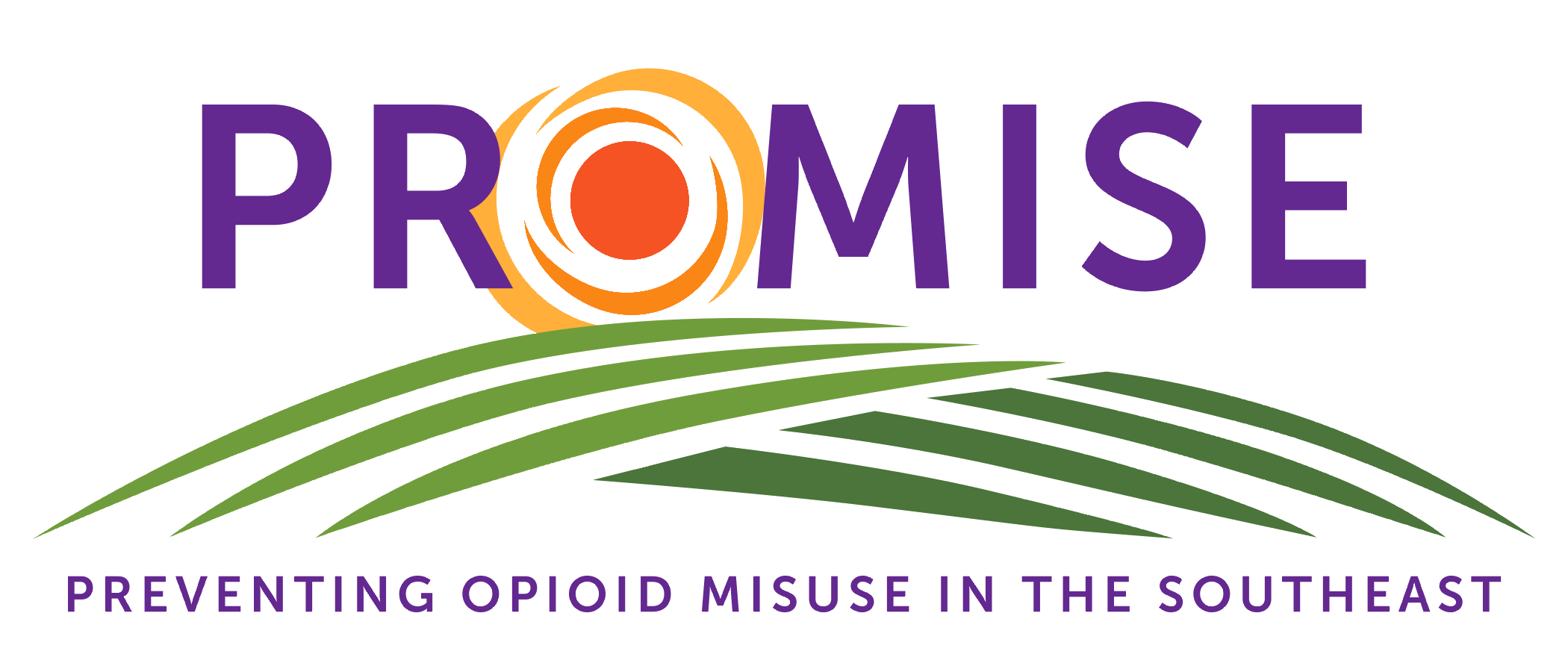The PROMISE Initiative

The PROMISE Initiative, PReventing Opioid Misuse In the South East, seeks to fight the growing opioid epidemic using a multi-phased approach to prevent prescription opioid misuse in rural Mississippi. 443 Mississippians died from an opioid-related overdose in 2020, a 124.9% increase since 2019 (MPDH, 2020). With Mississippi and the United States facing the worst increase in opioid-related deaths in recent years, the team of Extension professionals working on the PROMISE Initiative focuses on understanding all possible risk factors associated with substance misuse, mental health, and farm stress.
The PROMISE Initiative works to build resiliency-based extension programming in rural communities through:
- Increasing community engagement, assessing the region’s perceived needs and readiness for education about opioid misuse, and implementing tailored programs to meet those needs
- Using hands-on extension education to build community capacity for understanding the opioid crisis.
- Developing and implementing media campaigns to encourage proper opioid use and disposal
- Identifying placement of prescription drug take-back boxes throughout the state
- Combating farm stress in agriculturally engaged populations, identified as a common risk factor for mental health
This project is supported by Rural Health and Safety Education Grant No. 2020-46100-32841 from the USDA National Institute of Food and Agriculture (NIFA), Rural Opioids Technical Assistance (ROTA) Grant No. 5H79TI083275-02 from the DHHS Substance Abuse and Mental Health Services Administration, the MS Governor’s Education Emergency Response Funds 2020, and USDA NIFA Farm and Ranch Stress Assistance Network – State Department of Agriculture Grant No. 2021-70035-35566 from Mississippi Department of Agriculture and Commerce.
News
RAYMOND, Miss. -- Longtime dairy farmers David and Will Gilmer made the tough decision six years ago to get out of the dairy cattle business. The father-and-son team decided to transition their farm to beef cattle. However, the beef cattle business comes with its own stressful challenges.
Dr. Kim Klunk expected a certain level of stress when she began practicing veterinary medicine two years ago near her hometown of Magnolia, Mississippi. “It’s one of those things that you hear other people talk about when you’re in vet school, but you don’t realize the complexity of all of it until you experience it yourself,” said Klunk, who works with her mother Dr. Rachel Bateman at her mixed-animal clinic in McComb. It’s a common realization for many veterinarians who deal daily with financial concerns, work-life balance, compassion fatigue and client relationships among other stressful challenges of the profession.
While every job has stress points, few people go to work knowing they could lose hundreds of thousands of dollars in any given day. That is a reality for many in the agricultural sector, and mental health struggles are a frequent result.
Success Stories
Extension destigmatizes mental health issues, one conversation at a time
When Colby Hardin first started working at the Arkansas Department of Corrections dairy farm, he prepared as if going to war.




